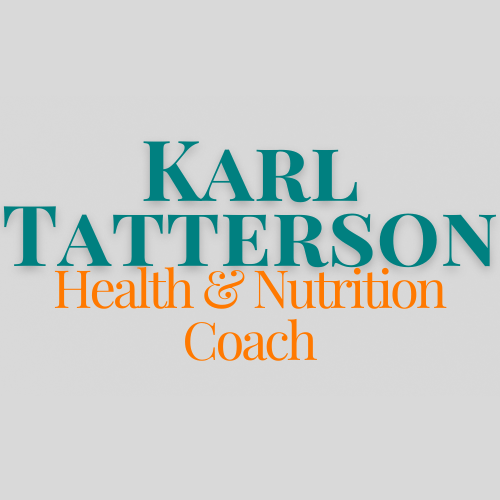Food First, Supplements Second: A Balanced Approach to Nutrition
Food First, Supplements Second: A Balanced Approach to Nutrition
In the world of health and wellness, the conversation around supplements can often feel overwhelming. With countless powders, pills, and potions promising quick fixes and optimal health, it’s easy to lose sight of the foundational truth: our plates should always be our primary source of nourishment.
At Karl Tatterson Nutrition, I firmly believe in a "food first" philosophy. Most of the time, the best vitamins, minerals, and overall nutritional support come directly from the whole, unprocessed foods we eat. However, that doesn't mean supplements have no place in a well-rounded diet. The key is understanding their role as additions, not replacements.
Why Whole Foods Are King for Vitamins and Minerals
Nature is the ultimate chemist, and whole foods offer a synergistic blend of nutrients that no supplement can perfectly replicate.
So, what exactly are "whole foods"? Simply put, whole foods are single-ingredient foods that are unprocessed or minimally processed, free from added sugars, artificial ingredients, or excessive refining. Think of them as being as close to their natural state as possible.
When you eat a colourful array of fruits, vegetables, lean proteins, and whole grains, you're not just getting isolated vitamins and minerals; you're getting:
Bioavailability: Nutrients from food are often more readily absorbed and utilized by your body because they come packaged with co-factors and compounds that enhance absorption.
Synergistic Effects: The various compounds in food work together in complex ways that we don't fully understand. Beta-carotene from a carrot, for example, is absorbed differently and offers more benefits than a synthetic beta-carotene pill alone.
Fibre Power: Whole foods, especially fruits, vegetables, legumes, and whole grains, are packed with dietary fibre. Fibre is crucial for digestive health, blood sugar control, satiety, and even plays a role in preventing chronic diseases. Supplements rarely provide this vital component.
Satiety and Enjoyment: Eating a balanced meal of whole foods provides sustained energy and a feeling of fullness that a handful of pills simply cannot. There's also the undeniable pleasure and cultural significance of sharing and preparing meals.
Practical Tips: Maximizing Nutrients from Your Plate
Want to make the most of your "food first" approach? Here are simple ways to ensure your plate is packed with the vitamins and minerals your body craves:
Eat the Rainbow: Aim for a plate full of diverse colors at every meal. Different colored fruits and vegetables often indicate different nutrient profiles. Think vibrant reds, deep greens, sunny yellows, and rich purples.
Prioritize Lean Protein: Include a source of lean protein (chicken, fish, legumes, tofu, eggs) with each meal to support muscle, satiety, and provide essential amino acids.
Embrace Healthy Fats: Don't shy away from healthy fats from sources like avocados, nuts, seeds, and olive oil. They're vital for hormone production and nutrient absorption.
Choose Whole Grains: Opt for whole grains like quinoa, brown rice, and oats over refined grains for sustained energy and increased fiber intake.
Cook at Home More Often: Preparing your own meals gives you control over ingredients, portion sizes, and nutrient density.
The Strategic Role of Supplements: When They Can Be a Good Addition
While whole foods form the cornerstone, there are legitimate scenarios where supplements can play a valuable, supportive role. This is where the "supplements second" part of the philosophy comes in.
Filling Nutritional Gaps: For specific dietary restrictions (e.g., Vitamin B12 for vegans) or known deficiencies (e.g., Vitamin D, especially in less sunny climates), targeted supplementation can be crucial.
Specific Health Conditions: Under professional guidance, certain supplements may support managing health conditions.
Convenience and Performance: This is where things like protein powder shine.
Protein Powder: A Convenient Ally, Not a Meal Replacement
Protein powder, when chosen wisely, is an excellent example of a supplement that can genuinely add value to your diet without undermining the "food first" principle.
Hitting Protein Targets: For those actively building muscle, recovering from intense training, or simply struggling to meet their daily protein requirements through whole foods alone (due to appetite, time constraints, or dietary preferences), protein powder offers a convenient and efficient way to boost intake.
Convenience on the Go: A protein shake can be a quick, easy, and digestible option for a post-workout snack or a busy-day protein boost when cooking a full meal isn't feasible.
Supports Satiety & Muscle Preservation: Adequate protein intake is vital for maintaining muscle mass (especially important as we age, linked directly to bone density, as we've discussed before!) and promoting satiety, which can support weight management goals.
Quality Matters: Just like with whole foods, the quality of your protein powder matters. Look for clean, digestible sources (like plant-based options such as pea protein, or high-quality whey if dairy is tolerated).
The key is that protein powder should complement your meals, not replace them entirely. It's a tool to help you reach your goals when whole food options aren't practical or sufficient.
The Karl Tatterson Approach: Balance and Guidance
At Karl Tatterson Nutrition, my approach is always holistic. We focus on building a strong foundation of whole, nourishing foods first. Then, if appropriate, we can strategically incorporate high-quality supplements like protein powder to support your specific needs, goals, and lifestyle.
Remember, every body is unique, and personalized guidance is key. If you're confused about what supplements might be right for you, or how to truly optimize your nutrition for long-term health, don't hesitate to reach out.
Ready to kickstart your balanced nutrition journey? Download your FREE High-Protein 7-Day Plan today and discover how easy healthy eating can be.
